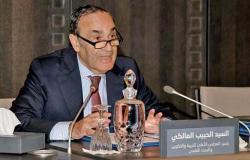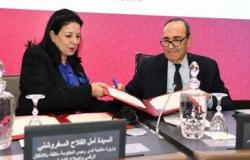Tuesday December 3, 2024
Reading time: 4 min
· Perceived “abuses” in the pricing of financial services fuel much more global institutional distrust.
· Interpersonal financing remains a considerable alternative to credit organizations.
· But an aspiration for greater formalization of financing appears in the discourse of certain actors.
Research based on a qualitative survey carried out among small Senegalese businesses shows that the adoption of different financial practices can be based on an explicit comparison between banking services on the one hand and mobile transactional services on the other ([1] Article blog « Mobile money: an alternative to a bank account? Result of research carried out in Senegal. “). Concerning more specifically the use of substantial financing, the banking option remains described in the speeches encountered as being essential, although controversial, which is reflected in the criticisms of it and of the banking institution more generally. The funding says “ formula » is thus frequently compared to that qualified “ d‘informal », namely interpersonal financing within a network of relatives or acquaintances, having the particularity of being generally non-commercial.
You work for the bank!
Pricing and flexibility
However, we must be careful not to conclude that free access is the main reason for adhering to interpersonal financing. Indeed, although criticism of financial services frequently targets pricing practices, this does not only reflect the economic and strategic willingness of actors to pay or not the price of the service, but also a moral positioning. Because pricing perceived as abusive feeds a much more global institutional distrust, aimed at “ l’enrichment » of the powerful to the detriment of the rest of the population. In this regard, one respondent says she prefers to use her available cash for loans or donations granted to members of her community, rather than depositing them in her bank account, thus competing with the role of financier of banks and other lending organizations.
In addition, the interest paid to the credit organization, whether in this case microfinance institutions or conventional banks, is more interpreted as an amount paid unduly to the lending organization concerned (“ You work for the bank! “) as the price of the time which separates the loan from repayment.
These social meanings given to banking services in reality reflect a certain state of solidarity relations in Senegalese society. Whether it is the family or the various communities to which the actors belong, these remain a considerable source of non-market alternatives to financing by credit organizations. In addition to being most often free or almost free, these financing methods offer greater flexibility in repayment deadlines and, above all, taking into account each person’s personal circumstances and ” imprévus » which may arise in the course of the activity (crisis, illness, etc.). The relative failure to take these considerations into account in the various lending organizations thus refers them to figures “ merciless ».
Interpersonal financing: between valorization and criticism
However, if interpersonal financing is a valued modality linked to this flexibility offered by the mutual aid network, it is no less criticized as well. Certain expenses imprandviews » constitute the reverse of solidarity relations. The obligation to provide assistance in return to the members of the group creates a source of expense that is difficult to predict and complicates management and anticipation within the company.
Furthermore, even if these solidarity practices are still largely common, the survey reveals in the discourse of certain actors an aspiration for greater formalization of financing. This is explained in particular by the decline of interpersonal guarantees linked to the lengthening of the chains of interdependence in which the actors are caught, and which leads to an increasing anonymization of economic relations.
Engaging in interpersonal financing methods does not always result in the strengthening of community ties; on the contrary, they are put to the test. The commitment to reputation and honor that interpersonal loan terms imply can gradually be experienced as a constraint or a source of abuse on the part of the borrower. Actors are likely to seek to escape from this to favor systems that are more legally equipped and less subject to the contingency of interpersonal knowledge.
Conclusion
In the discourse of small Senegalese “entrepreneurs”, bank financing remains the essential, but controversial, option for large amounts. But in a context where interpersonal financing remains the most common alternative, the criticisms made against it could nevertheless indicate the emergence of a demand for formalization of credit, aiming in particular to subject it to legal conventions and to better regulate in a context of weakening interpersonal guarantees. From this point of view, the challenge for new credit players, in Senegal and more broadly in Africa, would be to offer financial services which, while extending some of the logics of interpersonal financing, respond to the demand for formalization that emanates from it. .
Presentation of the field survey:
The survey is based on 45 interviews carried out between Dakar, Saint-Louis and their regions in 2021-2022, with small business owners and people working on their own account. Among the respondents, we include artisans, traders, self-proclaimed “ entrepreneurs », service providers, in different fields of activity (textiles, food, household appliances, catering, delivery, travel agencies, etc.).
All 45 respondents are made up of 16 women and 29 men, aged between 19 and 71 years old.
None of the people interviewed complies with the accounting standards in force in the region, which refers their businesses to the informal sector according to the criterion of the ANSD (National Agency for Statistics and Demography), although they have for most carried out administrative formalization procedures (national identification and registration in the commercial register).
The field work was carried out thanks to the support and translation work of Mamadou Mountaga Toure and Fatoumata Ba, whom we thank.







